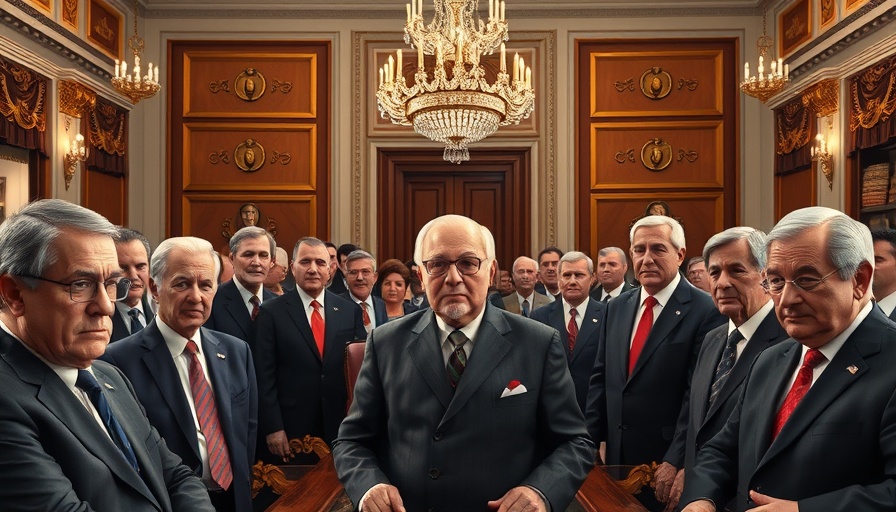
Defense Secretary Hegseth Faces Scrutiny Over Unauthorized Messaging
In a bold turn of events, Defense Secretary Pete Hegseth has been engulfed in controversy following revelations about a second Signal messaging group he created. Originally meant to discuss military strategies, including details of a March airstrike in Yemen against Houthi militants, this chat raised eyebrows regarding the protocols surrounding national security communications. The New York Times reported that key members included not just top Trump administration officials but also Hegseth's family members, which has emphasized worries about the appropriateness of casual communication platforms for discussing sensitive matters.
Understanding Signal's Role and Risks
The Signal app, while popular for its encryption and privacy features, is not approved for official government communications. This raises critical questions on whether such chats could compromise national security by diverting confidential discussions into vulnerable spaces. “We keep learning how Pete Hegseth put lives at risk,” stated Senate Democratic Leader Chuck Schumer, underlining the serious implications of these revelations. Critics argue that the nature of private messaging can easily lead to leaks and misunderstandings, which could be detrimental to military operations and broader national security efforts.
Who Was in the Chat?
The second chat, aptly named “Defense Team Huddle,” had 13 participants, including Hegseth’s wife, Jennifer, a former producer at Fox News, and his brother Phil, who works as a Department of Homeland Security liaison. The inclusion of family members in high-stakes conversations about military action is being debated, noting the ethical boundaries of sharing sensitive information beyond official channels. Such dynamics bring personal relationships into conflict with responsibilities rooted in national security.
Political Implications and Reactions
As details about these communications unfold, many are calling for accountability within the Trump administration. Hegseth's practices have ignited fierce political debates on how communication within government should adhere to established protocols. Critics argue that the laxity displayed in these chats represents a broader cultural issue within governmental dealings under Trump’s leadership. The challenge for the administration lies in balancing transparency with security and trust.
Broader Context of Military Communication
Communications related to national defense have long been a contentious subject in the U.S. Government. With the emergence of digital technology, the channels of communication are expanding rapidly, but the protocols and security measures have not always kept pace. As the military and government agencies increasingly rely on digital tools to manage complex operations, the integrity and approval of these tools remain paramount. This incident with Hegseth illustrates the fine line between knowing and protecting sensitive information, one that can decisively affect U.S. foreign policy.
The Future of Secure Communication
Moving forward, national security experts underscore the need for clear guidelines regarding digital communications in governmental operations. Experts suggest that more robust, government-sanctioned tools should be mandated to prevent unauthorized discussions of military strategies. As technology evolves, so too must the policies governing it, ensuring that national security isn’t sacrificed on the altar of convenience or over-familiarity.
Conclusion: Assessing National Security Risks
The events surrounding Defense Secretary Hegseth’s Signal chats serve as a stark reminder of the vulnerabilities within our military communication systems. As scrutiny continues, it is essential for both leaders and citizens to advocate for safeguarding communications that impact national and global security. It may be time to reevaluate the tools we trust for critical discussions to protect not only our political integrity but also the lives of those in the armed forces.
As developments unfold regarding this situation, how confident are you in the current safeguards protecting sensitive government communications? Now is the time to stay informed and engage in discussions about the significance of security in modern governance.
 Add Element
Add Element  Add Row
Add Row 



 Add Row
Add Row  Add
Add 


Write A Comment